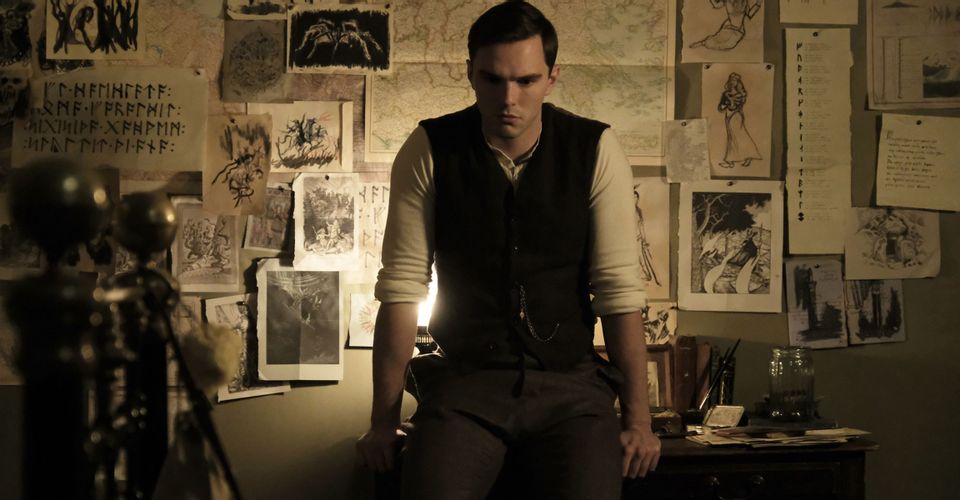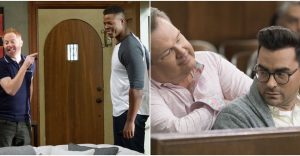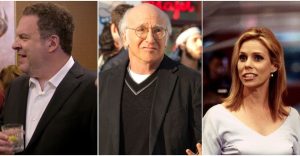Tolkien Review: The Respectful Biopic, or There and Back Again

Tolkien is an earnest and well-acted dramatization of the storyteller’s experiences that’s hindered by its adherence to the typical biopic framework.
Given the lasting impact of J.R.R. Tolkien’s books about Middle-earth (most notably, The Hobbit and Lord of the Rings trilogy), it was really only a matter of time before the author himself got the movie treatment. The biopic in question, Tolkien, has been in some form of development for the past six years, and arrives without the endorsement of the Tolkien estate (though, at the time of writing, they haven’t seen it, either). And while it’s, perhaps unsurprisingly, far less memorable than the writer’s fantasy creations, it makes for an otherwise gentle ode to the man, his life, and his loved ones. Tolkien is an earnest and well-acted dramatization of the storyteller’s experiences that’s hindered by its adherence to the typical biopic framework.
Tolkien begins by showing its namesake (who’s portrayed by Nicholas Hoult as a grown man) at the Battle of Somme during WWI, as he searches for a friend amidst the carnage and chaos. The movie jumps back and forth in time from there, starting from the author’s childhood – where his poor, but happy family is struck by tragedy – and continuing through to his school days, where he forms a close fellowship with three other boys. It’s a pretty standard timeline-hopping structure for a cinematic biography, but it serves to give the narrative a firmer shape. More than that, the scenes from the past offer some needed context for the present-day Tolkien’s relentless attempt to find his brother-in-spirit during the war… and explain why he would hallucinate smoky monsters, dragons, and cloaked figures on horseback riding across the battlefield.

Speaking of Tolkien’s Middle-earth visions (which he did, in fact, have in real life, after catching “trench fever”): they’re certainly reminiscent, but thankfully not overly derivative of the iconography and visuals from Peter Jackson’s Lord of the Rings and Hobbit adaptations. In general, director Dome Karukoski and his DP Lasse Frank Johannessen (who previously worked together on Tom of Finland) stay away from trying to make their film look like a fantasy adventure and embrace a grounded, but still polished period drama aesthetic, complete with handsomely designed historical costumes by Colleen Kelsall and a richly emotional score by the ever-prolific Thomas Newman. Overall, the movie has enough visual flair to avoid coming off as another stuffy biopic, and stand apart from similar recent dramas (like Goodbye Christopher Robin).
Most of the film’s problems stem from the story, which (as mentioned earlier) sticks too closely to the traditional memoir formula for its own good. The script by Stephen Beresford (Pride) and David Gleeson (The Front Line) works hard to cover the broader strokes of Tolkien’s experiences and the people in his life, from the other members of his self-formed T.C.B.S. (the Tea Club, Barrovian Society) to his essentially-lifelong romance with Edith Bratt (Lily Collins). In the end, though, Tolkien and Edith’s love story is far more compelling than most of the other plot threads in the film, save for the relationship between the author and his friend Geoffrey Bache Smith (more on that later). It also provides the most significant glimpse into the man’s inner workings and might’ve benefitted from being the movie’s centerpiece, even more than it already is. Instead, it’s watered down a bit here, having to compete for screentime as the film runs on through every major event in Tolkien’s life, book report-style.

If Tolkien is ultimately too much of a paint by numbers biopic narrative-wise, then its cast helps infuse its predictable story beats with more life. Hoult and Collins in particular make for a touching onscreen couple, with the former’s Tolkien matched in his intelligence and compassion by the more courageous, yet equally thoughtful and passionate Edith. The members of the T.C.B.S. – like Christopher Wiseman (Tom Glynn-Carney) and Robert Gilson (Patrick Gibson) – are less developed by comparison, but their sense of camaraderie comes through in their scenes together, thanks to the performances behind them. Still, of Tolkien’s many relationships, it’s his connection to the sensitive poet Geoffrey (Anthony Boyle) that’s the most stirring, aside from his love for Edith. In the end, Tolkien leaves it to audiences to interpret their affection for each other as they so choose (though, thankfully, it doesn’t rule out the idea they had romantic feelings for one another, either).
Tolkien might not as exciting or engaging as his epics about Middle-earth, but it’s an otherwise worthwhile biopic that’s elevated by the resonant love stories at its core. Obviously, there are shout-outs to the author’s famous literary characters and creations here, but for the most part the film is more invested in exploring the interests and beliefs that his writing was inspired by (and just merely, say, showing you how he came up terms like “Hobbit” and “Mordor”). It’s not a must-see in theaters, but the movie’s visuals certainly benefit from the big screen, and not just during its wartime sequences either. And if nothing else, Tolkien will leave those unfamiliar with the author’s real life with a fresh perspective on the fantasy settings he imagined.
TRAILER
Tolkien is now playing in U.S. theaters. It is 112 minutes long and is rated PG-13 for some sequences of war violence.
Let us know what you thought of the film in the comments section!
- Tolkien (2019)Release date: May 10, 2019

















